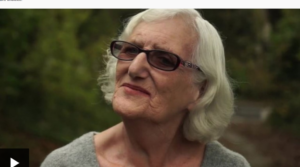When you hear the term ‘death planning’, it probably invokes a rather morbid series of thoughts.
But death planning isn’t as morbid as it sounds, and in fact forms part of later life planning, to help ease matters at what is usually already a very challenging time.
Death and dying is, sadly, something on the minds of tens of thousands of families across the UK, as the coronavirus pandemic continues to dominate our daily lives.
This week is Dying Matters Awareness Week; an awareness campaign which focuses on a range of issues around death, dying and bereavement.
Death remains a taboo for many, as an uncomfortable subject to discuss and confront.
By making conversations about death and dying part of the national conversation, the Dying Matters Awareness Week campaign seeks to help make the subject less uncomfortable.
Back in 2016, insurer Royal London published a report, Losing a partner – the financial and practical consequences, which examined the views of 500 people who had experienced a bereavement in the last five years.
Their key finding was that seven in ten people who lost partner were unprepared for the loss, in financial and practical terms.
They found that only 11% of people surveyed felt both financially and practically prepared when they lost their partner.
Death planning matters
And only two in five people had made a will.
Putting in place a valid will is such a fundamental financial planning step, and it’s shocking that the numbers of people without a valid will in place remain so low.
Three in ten of those surveyed in the research said they had discussed their wishes for a funeral with their partner.
Only a quarter had discussed the prospect of their partner dying, but very few of these had taken any practical steps or actions as a result.
The report also found:
-One in five (22%) of those recently bereaved said the financial impact of lower-income was the most difficult to deal with;
-Around one in six (18%) said they did not know what to do about the funeral; and
-Around one in six (16%) also found it challenging to look after the house following the death of their partner; a third (34%) said it was difficult to cook and nearly four in ten (37%) struggled with the washing and ironing.
What to do when someone dies
More recently, insurer SunLife has launched a new guide, called What to do when someone dies.
This free guide was created to help people who are recently bereaved, so they can work out what needs to be done first and what happens next.
The guide includes tips and checklists for coping a little easier with this challenging time.
Ian Atkinson, marketing director at SunLife said:
Losing someone we love is upsetting and often traumatic, and that is hard enough to deal with, but then when you realise how much practical work there is to do it can become even more overwhelming.
Some of the considerations when a loved one has died include the actions to take straight after the death, how to register the death, how to tell people, how to arrange the funeral, and what you need to do to settle the estate.
Ian concludes:
We all respond to death differently, but there are certain things we all have to do on a practical level.
However, if you have never had to deal with death before, it can be hard to know where to begin.
We hope this guide will help those who have been bereaved, but also, that it might help start a conversation about death and get people to start talking about these types of issues with friends and family and making practical, financial and emotional plans so that when the time comes, we are all a little bit more prepared.
Taking practical steps
Dealing with death and bereavement is never an easy thing.
Taking steps to prepare in advance for the financial and practical implications of dying is a way to remove some unnecessary burden at an already difficult time.
Regardless of how difficult it can be to discuss death (even in the middle of a global pandemic!), it is an essential conversation.
Part of my role as a later life planner is to facilitate these sometimes uncomfortable conversations with my clients. I want you to think now about the most suitable way to leave your affairs in good order, as well as leaving a legacy for your beneficiaries.
Dying without a plan for the financial and practical implications risks leaving your loved ones feeling even more upset, and even risks families falling out over matters including funeral wishes and the division of assets.
Do get in touch today to discuss all aspects of your later life planning, including making a plan for the inevitable.
Sources:
Losing a partner – the financial and practical consequences
The information contained in this blog post does not constitute advice or recommendations. You should seek independent financial advice before acting on any information on this website.




